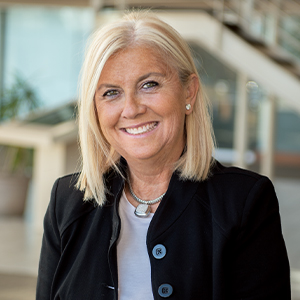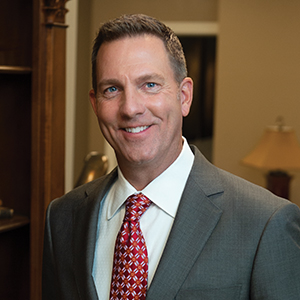Writer: Steve Dinnen
Photographer: Duane Tinkey
Investors are sailing into uncharted waters in 2021, left to map a course against the currents of a new national government—with changed priorities—a health crisis, and an economy that has been seriously disrupted.
You can go it alone as an investor, but you don’t need to. Better to tap into the guidance that some top-ranked wealth builders offered dsm.
The question we posed to each adviser was the same: “What is the one piece of advice you have for managing your portfolio in 2021, given the uncertainty of the pandemic and the economy?”
Read their answers below.

Deniz Franke
Private Wealth Adviser
Franke Miller Group
All too often I see other advisers attempt to “sell” clients simply on performance. The key in building a portfolio is to focus on risk-adjusted returns. There are great performing stocks and funds; however, you have to assess the level of risk you’re taking in order to achieve that return.
When I hear someone tell me that they made a significant income last year, my first thought is to find out what their expenses were. Hence, the word “profit” comes into play, which provides a much clearer picture in terms of how well one did or did not do.
The same concept applies to investing. If you focus only on performance without looking at the risk associated with those returns, you see just half the picture. Risk metrics come in a plethora of forms with fancy names. However, the concept is rather simple: Instead of focusing on returns, focus on returns per unit of risk. Risk management is a critical part of our investment process, and we remain focused on the bigger (more accurate) picture of risk-adjusted returns for our clients.

Kent Kramer
Chief Investment Officer
Foster Group
The most important advice in the face of uncertainty is to always understand the purpose, and therefore your time horizon, for every investment. The potential for surprises (positive and negative) exists every year. Wise investors embrace uncertainty as a constant.
Time horizon is so crucial because if you know you’ll need liquidity for certain goals or expenses in the next month or in six months, those dollars need to be held in very low-risk investments like cash and short-term high-quality bonds.
As we’ve learned again thanks to COVID-19, interest rates, stock and bond markets, and economic conditions can turn in a matter of days or even hours. When that happens and everyone is heading for the exits, the dollars you need should be as insulated as possible from the kind of downward momentum that occurred last February and March.
Money that is meant to grow for the next 10 to 20 years in preparation for retirement does not need the liquidity of short-term investments. For these long-term dollars, certain kinds of risk and uncertainty are actually favorable. Stock market risk is associated with higher expected long-term returns, the kind of return that outpaces inflation and builds wealth.

Stoy Hall
Stoy Hall
Founder and CEO
Black Mammoth
At Black Mammoth, we are telling our clients that a realistic opinion for 2021 is nearly impossible without assumptions, so for this press deadline in mid-November, we will assume Joe Biden is president, COVID will be improved by the spring (travel is open, vaccine is out, few restrictions), and we get the same stimulus as we did earlier this year.
We believe next year will see a huge rebound in the travel market, real estate investment trusts (REITs), and the energy sector. This is due to pent-up demand for travel, along with a presidency focused on clean energy. Opportunities we will be investing in and watching will be the commercial real estate and Vrbo-type properties and stocks as people will travel and shy away from crowded hotels—they will want seclusion.
This will only extend the next correction out another 12 to 18 months, as our core economy is still not healthy and has been overvalued for a couple of years. Without these assumptions, this correction is within 10 months, in our opinion.

Clinton Akerberg
Managing Partner
The Wealth Consulting Group
Stay invested, and buy the dips! 2020 has been an unprecedented year in many respects, one of which was the most violent stock market sell-off and recovery in history. While there are many uncertainties surrounding COVID-19 and what this winter will bring, the market appears to be looking forward into 2021 with a jovial eye.
Despite the positive outlook, market dips are inevitable and can provide incredible buying opportunities for the savvy investor who finds clarity when the herd is frightened. If COVID-19 continues on the current trajectory or if we do not experience a peaceful transition of power, further uncertainty may take hold, which begets market opportunity.
Americans currently have three times more savings sitting on the sidelines than historical averages. Use it wisely, and remember: Buy the dips!

Chris Cook
Chief Investment Strategist
Gilbert & Cook Inc.
I am not going to tell you to “stay the course.” I am going to advise that you chart the course under the calmest mindset that you can conjure up amid elections and COVID.
Periods of stress change our thinking. Humans change their minds, second-guess, feel regret and feel blame. So, on a Sunday afternoon, with no screens going and no markets open, set a 10-year course you can stay true to. Balance your 10-plus-year optimism (you should have some) with your near-term needs.
Investors can fail in times of extreme pessimism or optimism by extrapolating current events into the future. Things will not be bad/good forever. You do not want to be a forced seller or lose your nerve at the market bottom last March. This period of stress, like those before it, has retaught those lessons.

Dennis Markway
Certified Financial Planner
Iron Horse Wealth Management LLC
My advice to investors given the uncertainty of the pandemic and economy comes from the ages. Persian poets, Jewish folklore, Abraham Lincoln and George Harrison have all said it in their own way: This too shall pass.
The risks we see and feel today are transitory, so focus on what will endure. And what will endure are your goals, so make sure that every day, week, month and year you are making incremental steps on that path.
Nevertheless, as we move further into 2021, I expect the economy to continue to improve, interest rates to stay low, and people to be able to get back to work—all of which will have a positive impact on the markets and investing.
So, while 2020 has been full of challenges, uncertainty and ominous weather, those storm clouds will break with bluer skies in 2021.











